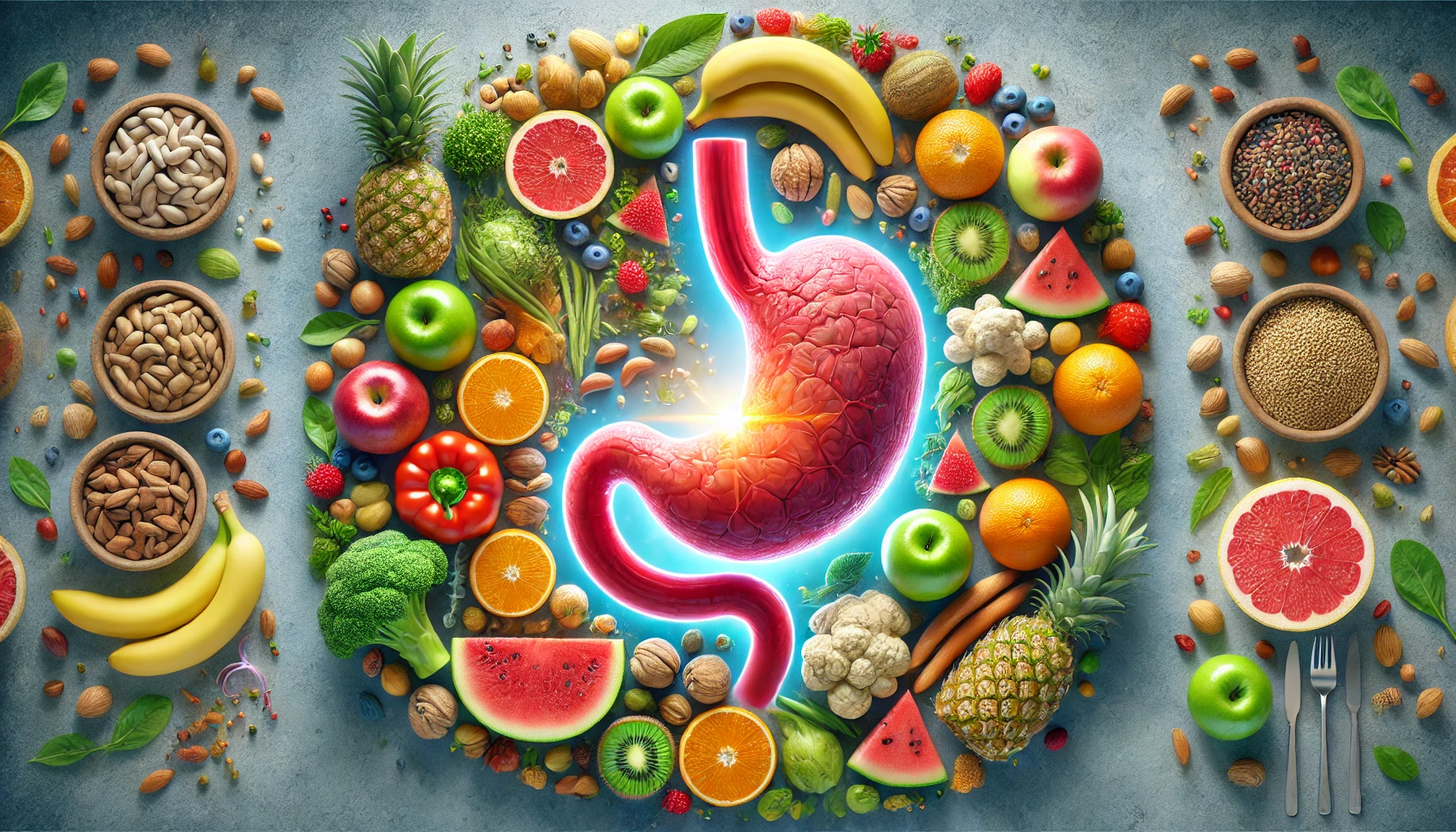This post was written with Consensus AI Academic Search Engine – please read our Disclaimer at the end of this article. Digestive enzymes are specialized proteins that play a crucial role in the breakdown of food into nutrients that the body can absorb and utilize. These enzymes catalyze chemical reactions that convert complex molecules such as proteins, fats, and carbohydrates into simpler forms. This article explores the types, functions, and significance of digestive enzymes, as well as their applications in both human health and animal nutrition.
Types of Digestive Enzymes
Digestive enzymes can be broadly categorized based on the type of nutrient they act upon:
- Proteases: These enzymes break down proteins into amino acids. Examples include trypsin and chymotrypsin, which are active in the small intestine3 7.
- Amylases: These enzymes convert carbohydrates into simple sugars. Amylase activity is crucial for the digestion of starches and is found in saliva and the pancreas3 7.
- Lipases: These enzymes are responsible for the breakdown of fats into fatty acids and glycerol. Lipase activity is essential for fat digestion and absorption3 7.
Functions and Mechanisms
Digestive enzymes facilitate the chemical breakdown of food, making nutrients available for absorption in the intestines. For instance, proteases like trypsin and chymotrypsin break down protein molecules into smaller peptides and amino acids, which can then be absorbed by the intestinal lining3 7. Amylases convert complex carbohydrates into simple sugars such as glucose, which are easily absorbed into the bloodstream3 7. Lipases break down dietary fats into fatty acids and glycerol, aiding in fat absorption and metabolism3 7.
Applications in Human Health
Digestive enzymes are not only vital for normal digestive processes but also have therapeutic applications. For example, enzyme supplements can improve gastrointestinal symptoms in patients with conditions like inflammatory bowel disease (IBD) and irritable bowel syndrome (IBS). A study demonstrated that a mixture of beta-glucan, inositol, and digestive enzymes significantly reduced bloating, flatulence, and abdominal pain in IBD-IBS patients, thereby improving their overall clinical condition4.
Applications in Animal Nutrition
In animal nutrition, exogenous enzyme supplementation can enhance diet digestibility and improve growth performance. For instance, the addition of non-starch polysaccharide (NSP) enzymes to piglet diets improved growth performance and altered digestive enzyme activities in the small intestine6. Similarly, enzyme complexes like Synergen® and Natugrain®TS have been shown to increase the apparent digestibility of nutrients in turbot juveniles, thereby enhancing their growth and health1.
Conclusion
Digestive enzymes are indispensable for the efficient breakdown and absorption of nutrients. Their role extends beyond natural digestive processes to therapeutic applications in human health and nutritional enhancements in animal feed. Understanding the types, functions, and benefits of digestive enzymes can lead to better health outcomes and improved nutritional strategies for both humans and animals.
By leveraging the power of digestive enzymes, we can optimize digestive health and nutrient utilization, ultimately contributing to overall well-being and performance.
Disclaimer
The content presented in this blog is generated by Consensus, an AI-powered academic search engine, and is based on publicly available scientific literature. While every effort is made to provide accurate, up-to-date, and well-researched information, the content is intended for informational and educational purposes only. It does not constitute medical advice, diagnosis, or treatment. Always consult a qualified healthcare professional before making any decisions regarding medical conditions, treatments, or medications. The AI system’s analysis may not cover all perspectives, emerging research, or individual cases, and it is not a substitute for professional expertise. Neither the blog publisher nor the developers of the AI-powered search engine are responsible for any actions taken based on the information provided in this content. Use of this information is at your own risk. Citations to the original scientific studies are included for reference, but these studies should be reviewed in full and interpreted with the guidance of a healthcare or research professional.
If you are experiencing a medical emergency, please seek immediate attention from a healthcare provider.
